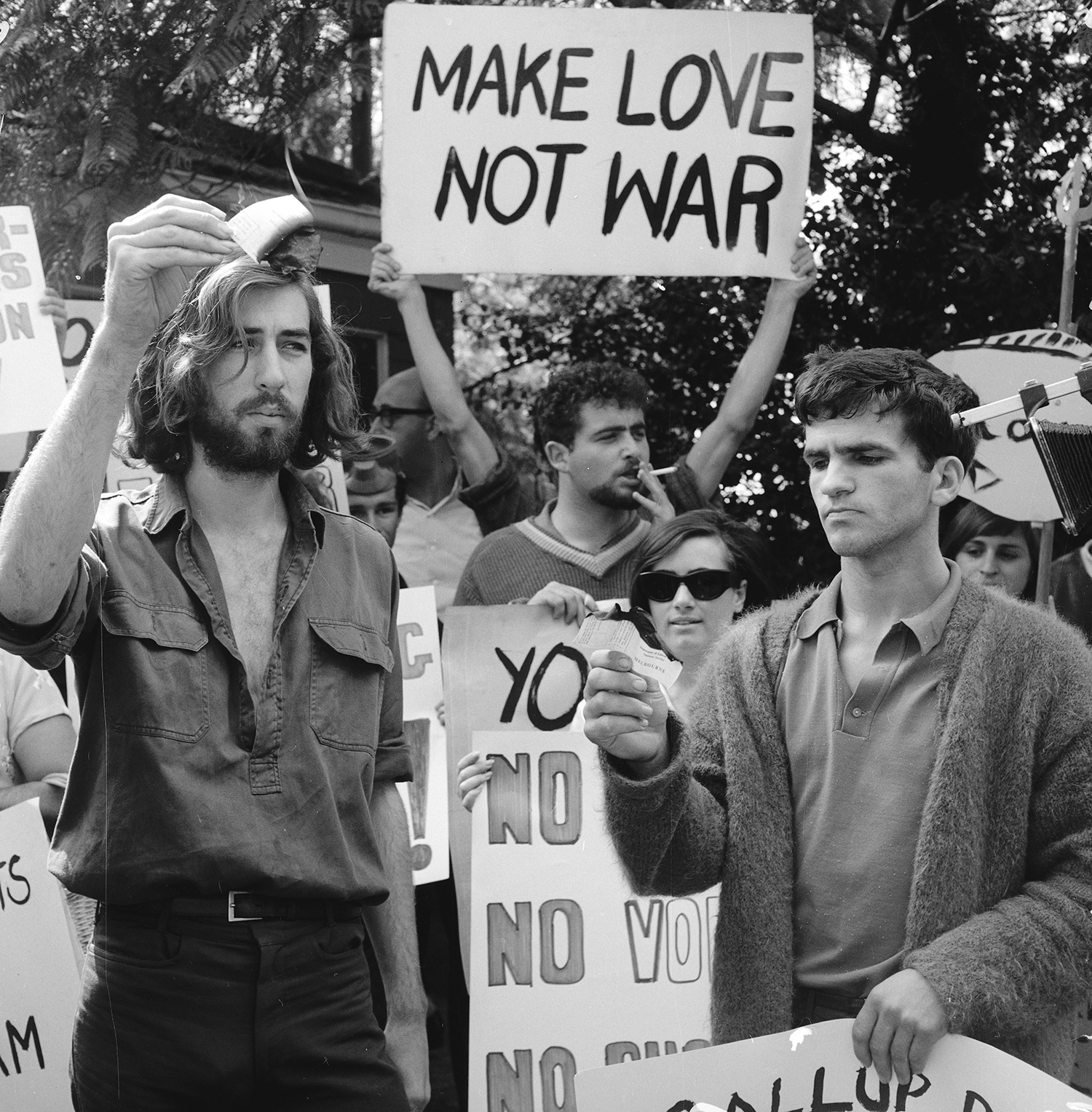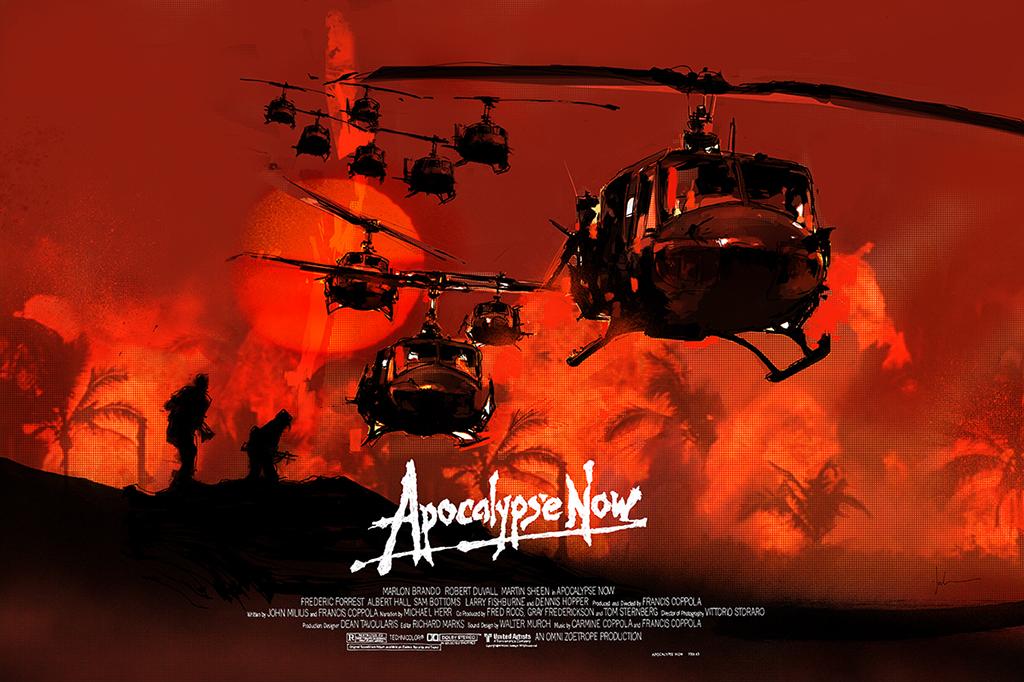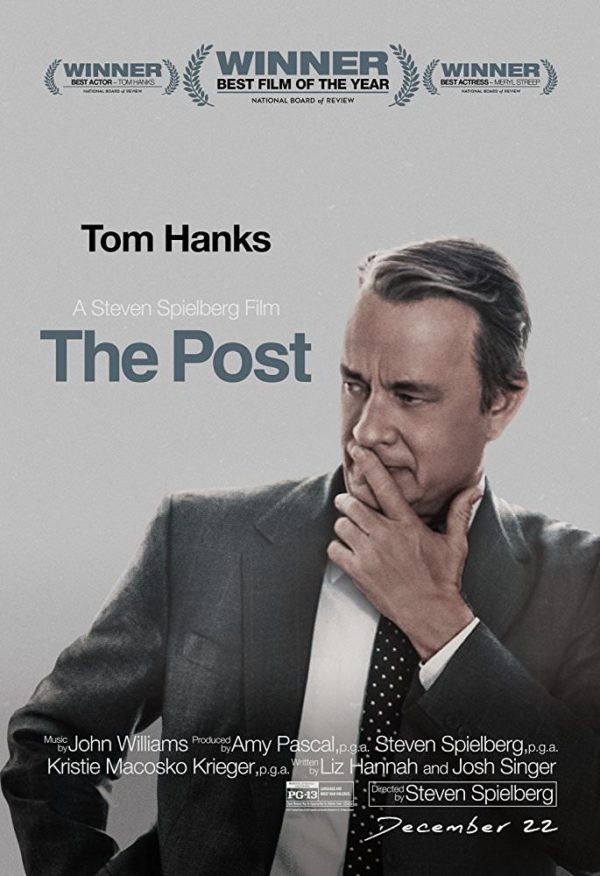
Concrete Values, Appeal to Consequences
|
The posters these
protestors are holding up show an argument based on concrete values. There is no mistaking the message of the sign,
(other than if the sign has a sexual connotation which wouldn’t be that
surprising). The sign is simple, yet vastly effective; don’t go to war, make
love with the nations of the world.
Appeal to Consequences: If we stop the war, love will spread. But will it really?
|

Emotional
Appeal, Space
|
This protestor
simultaneously makes an argument while creating a logical fallacy in her
argument at the same time. The argument the protestor is trying to make is
one of space that relates with the
rest of the American people: ‘my son was killed in a pointless war, how long
before they take yours?’. That being said, this sign also falls into the
territories of emotional appeal,
creating an argument based on the emotions of others rather than trying their
hardest to make an argument based on logic and reasoning. That being said,
the sign is still very effective and definitely raised a few eyebrows
|
|
Repetition
|
These protestors in
union hold up sign to drive home the message using repetition:
STOP THE WAR STOP
THE WAR STOP THE WAR STOP THE WAR STOP THE WAR
“Honey, when do you
wanna go home?”
AFTER WE STOP THE WAR
“Hey guys, I’m
hungry, do you want to get something to eat?”
AFTER WE STOP THE
WAR
“Um, sir, you need
to pick your daughter up from school.”
I’LL PICK HER UP AFTER
WE STOP THE WAR.
|

Time,
Slippery Slope
|
This sign is
interesting in that it’s slightly more threatening than the other, as it
builds an argument on time with a
false sense of urgency using a slippery
slope argument. The poster is trying to convince us that if we don’t end
the war in Vietnam, it will somehow come over here and endanger us all. This
is the same type of mentality used to create most slippery slope arguments,
which use a false sense of urgency to create a necessity for itself. Flawed
to say the least.
|

Full Metal Jacket (Kubrick, 1987)
|
Stanley Kubrick’s Full Metal Jacket is a look into the
hellish nature of the Vietnam War, from the training camps in which we see a
normal man slowly decent into insanity and kill himself, to the actual war in
which the dehumanizing effect of war is shown in full force. This poster has
a very high contrast, with the
background being completely white, the giant amount of open space around the ‘Born to Kill’ helmet, and the eye level shot of the helmet along
with the helmet itself being an icon for
much of the controversy surrounding the Vietnam War.
|

Apocalypse Now (Coppola, 1979)
|
Loosely based on
the Joseph Conrad novel Heart of
Darkness, Francis Ford Coppola’s Apocalypse
Now was once panned by critics at the time of its release but is now
considered to be one of the greatest war epics ever made. All posters for the
movie feature the bright red
background drawing attention to the practice of napalming which was
commonplace during the Vietnam war, along with high levels of abstraction to make the poster look
more like a painting than a poster.
|

Taxi
Driver (Scorsese, 1976)
|
Although not
inherently a movie about the Vietnam War itself, Taxi Driver takes a look into post-Vietnam society through the
eyes of Travis Bickle, a war veteran turned nobody who seeks to try and blend
in with society and become somebody. The font on this iconic poster is in bold so there is no mistaking what
the title of the movie is, along with a fairly low contrast. Travis’s taxi is among the most noticeable things
in the poster, as its bright yellow contrasts
with the dark background
|

The
Post (Spielberg, 2017)
|
Steven Spielberg’s The Post takes a look at the more
political side of the Vietnam war with a scandal of classified war documents
proving corruption in the Nixon administration being published by the
Washington Post. Upon first glance of the poster, it does appear fairly
bland, but when you read all the names, the poster literally speaks for
itself. Tom Hanks, one of the most critically acclaimed actors of all time, Meryl
Streep, among if not the most famous actresses of all time, and Steven
Spielberg, one of the greatest directors of all time. The poster prides
itself on its credibility which
lets the poster speak for itself
|
I remember walking into [the draft examination room] ...and it
looked...like a slaughter house, and they had us take off our clothes, and we
all sat there and bent over... and I got this distinct image of cattle being
led off to the slaughter, which is what was happening. Here was the US
government getting all us young kids, and you know, eventually at the end of
the line, was somebody, and you either killed them or they killed you. -Tony Ramos
Jesus, we rained more bombs, more terror on that country than in
the history, than has ever been visited upon any place in the history of the
world. We were fighting a war that couldn't be won. The answer is not to try to
win, the answer is to try to get the hell out. -Dan Prentis
...in the night particularly, usually they
would come up near our camp and sort of fire, fire into it, or fire over our
heads and you'd hear bullets whizzing by and, you know, it's sort of a real eye
opener to think that somebody you didn't even know was trying to kill... -Ed
Wood
Conway, Pedro.
“Vietnam War BBC Film HD - The Best Documentary Ever!!” YouTube,
YouTube, 4 Feb. 2017, www.youtube.com/watch?time_continue=1&v=YNg_Bh4TE14.
“We had some
precarious situations and we lost some people, but… we always won. So, to me, I
think we were very successful, but as I think of it now I don’t know what we
won. We won a box on a map that we left the next day and we never came back
maybe.” 3:19-3:37 Veteran
“Wherever the
Americans went, they burned and destroyed, and they killed. I didn’t see any
guerillas being killed, only villagers.” Vietnamese woman 3:43-4:02
“I always believed in
my country. But instead of sending my sons out to defend their country, I sent
them out to die.” 4:43-4:56 Vietnamese Man
“It was the first
television war… with uncensored battle reports sent to the folks at home” 5:47-5:56
“It was the first war
that Americans opposed in huge numbers, openly and passionately
Man: Are you
listening, Nixon?!” 6:17-6:23
“The end of the war
left questions and issues that are still unanswered… and unresolved” 6:58-7:04
“Interviewer: Are you
afraid of death?
Vietnamese woman: Oh
no, not at all! Because in my country, death is always just around the corner.
If you’re afraid of it, you can’t do anything.” 1:24:27-1:24:40
“If we withdrew from
Vietnam, communists would control Vietnam, pretty soon Thailand, Cambodia,
Laos, Malaya would go.” John F Kennedy 1:32:20-1:32:30
“If this little nation
goes down the drain, can’t maintain their independence, ask yourself what’s
going to happen to all the other little nations.” Slippery slope 1:32:30-1:32:35
Chaos -> Tyranny
-
USA claims involvement in Vietnam is to
stop the spread of communism, but later escalates into borderline colonization
with use of chemical weapons such as Agent Orange and Napalm
Unclear
Pointless - | - Purposeful (By the time LBJ was up for
reelection, his approval rating was so low he was forced to step down
Clear
Public issue, trend, campaign
-
Vietnam War involvement was questioned which
lead to protests and later an entire movement.
Peaceful Protest (silent, mild, loud, angry), Civil
Disobedience (passive/typical, active/atypical), violence, terrorism
-While Vietnam protests often escalated into acts of civil
disobedience there was no terrorism involved
Anti-Epic, monster, horror, political slippery slope,
etc.

No comments:
Post a Comment